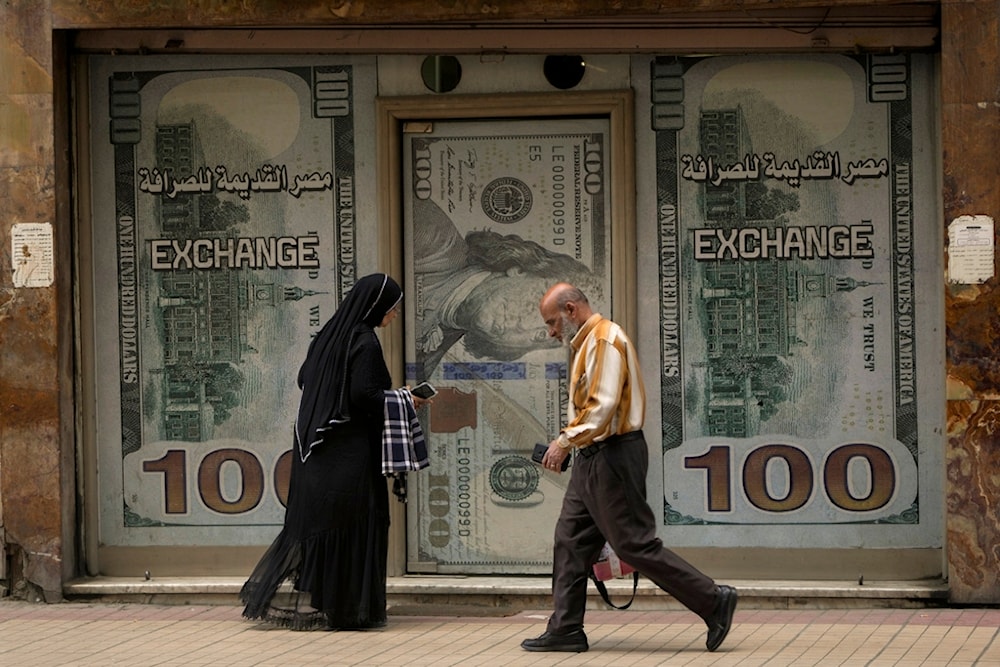IMF approves $8Bln bailout loan for Egypt amidst economic struggles
The IMF board announced that Egypt will immediately receive approximately $820 million as part of the expanded loan agreement.
-

Egyptians walk past an exchange office in Cairo, Egypt, Wednesday, March 6, 2024. (AP)
The executive board of the International Monetary Fund (IMF) on Saturday has given its approval for Egypt to increase its bailout loan from $3 billion to $8 billion.
This decision comes amidst a dire economic situation in the Arab country, characterized by a severe shortage of foreign currency and soaring inflation.
In a statement released late Friday, the IMF board announced that Egypt will immediately receive approximately $820 million as part of the expanded loan agreement, which was initially announced earlier this month.
The agreement was reached following negotiations between Egypt and the IMF, during which Egypt committed to implementing a reform plan focused on measures such as floating the local currency, reducing public investment, and fostering private sector growth.
Egypt has already taken significant steps to address its economic challenges, including floating the Egyptian pound and raising interest rates. Commercial banks are now trading the US dollar at a significantly higher rate, aiming to combat inflation and attract foreign investment.
Read more: Egyptian Pound in disastrous lows after Bank agrees to IMF conditions
The Egyptian economy has been severely impacted by various factors, including government austerity measures, the COVID-19 pandemic, the Ukraine war, and the recent war on Gaza. Furthermore, attacks on shipping routes in the Red Sea by the Yemeni resistance have reduced revenues from the Suez Canal, a crucial source of foreign currency for Egypt.
IMF Managing Director Kristalina Georgieva cited the recent conflicts and disruptions in the Red Sea as contributing factors to Egypt's economic crisis.
The IMF noted that these external shocks, combined with delayed reforms, have negatively affected economic activity in Egypt. Growth has slowed, with projections indicating a further decline before a gradual recovery in the coming years.
While inflation remains high, the IMF expects it to ease over the medium term. However, the currency devaluation and interest rate hikes have added to the financial strain on Egyptians, particularly those already grappling with poverty.
Egypt's Finance Minister Mohamed Maait welcomed the IMF's decision and underscored the government's commitment to implementing corrective measures to address the economic challenges.
In addition to the IMF bailout, Egypt recently signed a deal with the EU for a substantial aid package totaling 7.4 billion euros ($8 billion) over three years. The EU plans to expedite the disbursement of 1 billion euros ($1.1 billion) from the package to provide urgent financial assistance to Egypt's struggling economy.
Read more: Egypt, EU to establish strategic partnership as war on Gaza rages

 3 Min Read
3 Min Read








